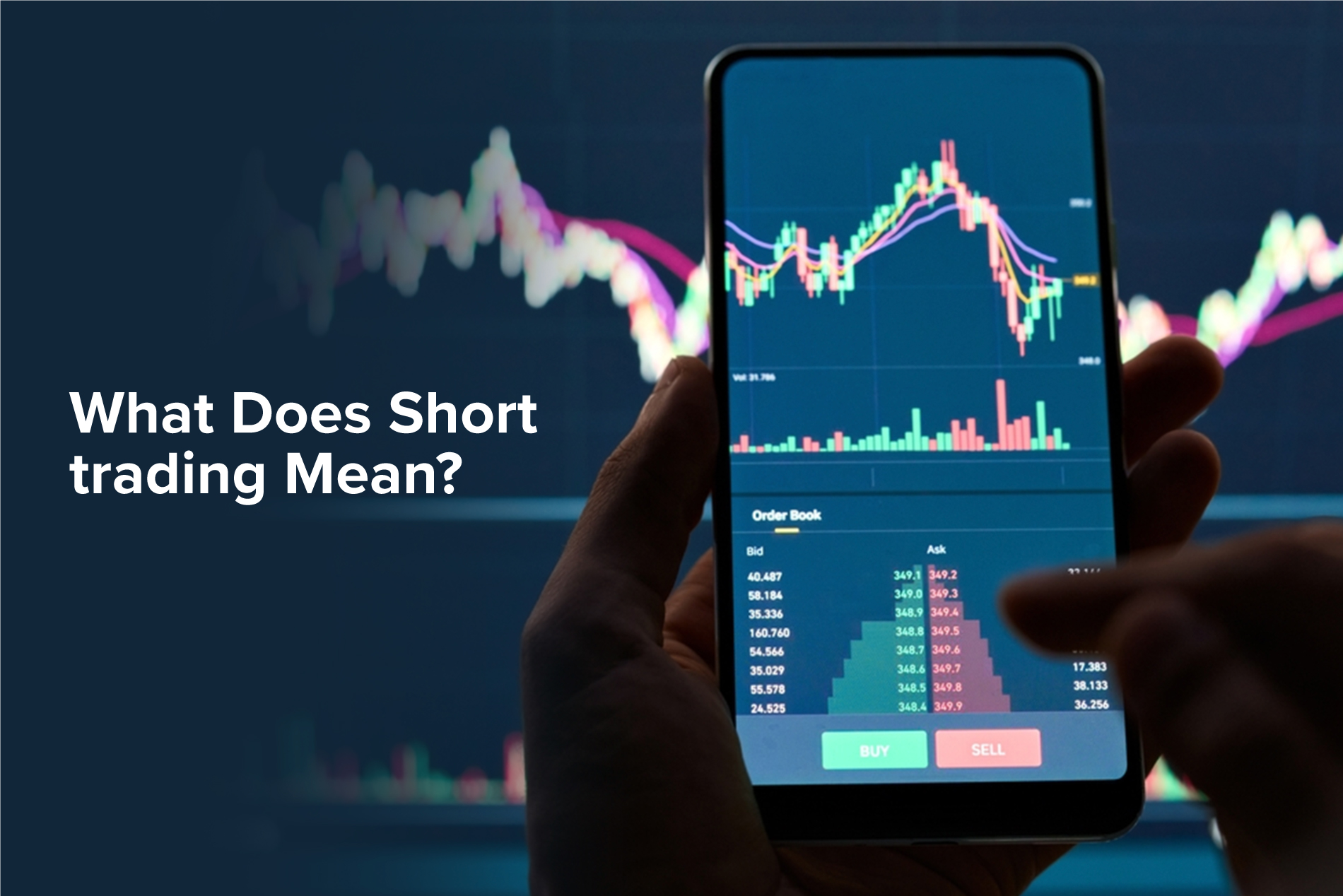Monday, November 21, 2022
What Does Short trading Mean?
تم إعداد هذا المنشور من قبل سنشري للاستشارات

.jpg)
You have probably heard about short trading in the market. Maybe your stock broker told you to try it, or a friend told you how much money they made through a short trade, or perhaps you know about it because of the movie ‘The Big Short’. But you don’t really know about it. So, let’s learn about short trade.
Short Trading
In simple terms, short trading or short selling, as it is also known, is a stock market investment strategy to bet against a stock. It is a bearish move needing a stock’s value to drop for an investor to earn a profit. Remember ‘The Big Short’ when they bet against the real estate sector?
For an investor to sell short, they would need to borrow the stock through their brokerage firm from someone who owns it. Subsequently, the investor sells that stock and receives the proceeds. Now, the investor is hoping the price of the stock will drop and give them a chance to purchase it at a lower price. Whatever money is left after buying the stock is the profit earned. The below graph should help explain it further to you.
.jpg)
This trading strategy is a high-risk, big rewards strategy that requires investors to keep a close eye on market movements and share price fluctuations. It is for this reason that this is a strategy preferred by active or experienced investors. After all, when everything goes according to plan, it can yield impressive returns. But the downfall is that it can also lead to considerable losses if you don’t have a good strategy in place.
So why are they few takers?
Of course, short selling seems like a smart strategy, but why do so very few investors use this strategy? Well, it is generally market behavior. Most investors would like to see its value increase when they invest in a stock, fund or investment. Even though the market swings in either direction, in the long term, the value of a particular stock is always like to be on an upward trajectory.
However, shorting stocks is very popular among professional traders, especially day traders. Even though it can make a profit, it can drive the stock down too quickly. When an investor shorts, it allows them to profit from market movements. As investors can sell and buy throughout the day based on price movements, many traders don’t care which direction the price is moving, only that it is moving.

Metrics for short trading
On most occasions, traders are likely to use two short trading metrics to determine if a stock is overvalued or expected to drop:
Days to cover ratio: Here, the total number of shares that are held to be short is divided by the stock’s average daily trading volume. A bearish indicator for the stock is when there is a high value for the days to cover ratio.
Short interest ratio(SIR): Here, the ratio of shares that are shorted is measured with the number of shares floating in the market. A very high SIR is associated with stocks that are falling or stocks that appear to be overvalued.
| Pros | Cons |
| Possibility of high profits | Potentially unlimited losses |
| Little initial capital required | Margin account necessary |
| Leveraged investments possible | Margin interest incurred |
| Hedge against other holdings | Short squeezes |
Tips to short trade
If you are day trading via short-selling, it is pertinent to strategize and plan well. Here are some tips.




.jpg)
Short trades are essentially a pessimistic move, requiring a stock’s value to decline so that an investor can make money. It's a high-risk, short-term trading strategy which requires constant stock monitoring and requires an adequate understanding of the markets and their swings. Thus, it may not be a suitable strategy for passive individual investors. However, for active traders, short trading can produce positive returns during down markets. That being said, if you still decide to make short trade, it is essential to strategize a clear exit plan.
لا تقدم شركة سنشري للإستشارات والتحليل المالي ش.ذ.م.م (الشركة) محتوى هذه المدونة، بما في ذلك أي أبحاث أو تحليلات أو آراء أو توقعات أو أي معلومات أخرى (يُشار إليها مجتمعةً باسم "المعلومات")، إلا لأغراض التسويق والتثقيف وإتاحة المعلومات العامة. ولا يُفسَّر ذلك على أنه نصيحة استثمارية أو توصية أو دعوة لشراء أو بيع أي أدوات مالية.
كما يجوز نشر هذه المعلومات عبر قنوات مختلفة، بما في ذلك موقع الشركة الإلكتروني، ومنصات الغير، والنشرات الإخبارية، والمواد التسويقية، ورسائل البريد الإلكتروني، ووسائل التواصل الاجتماعي، وتطبيقات المراسلة، والندوات الإلكترونية، وغيرها من وسائل التواصل. وبينما تسعى الشركة لضمان دقة المحتوى، فإنها لا تضمن اكتماله أو موثوقيته أو تحديثه في الوقت المناسب. وعليه، فأي قرارات تُتخذ بناءً على هذه المعلومات تكون على مسؤوليتك الشخصية. ولا تتحمل الشركة أي مسؤولية عن أي خسارة أو ضرر ناتج عن استخدامها.
ينطوي تداول المنتجات المالية على مخاطر كبيرة، بما لا يتناسب مع جميع المستثمرين. فيُرجى التأكد من وعيك التام بالمخاطر، وطلب الاستشارة المهنية المتخصصة إذا لزم الأمر.
يُرجى الاطلاع على بيان كشف المخاطر الشامل المتوفر على موقعنا الإلكتروني.
__1418016979.jpg)















